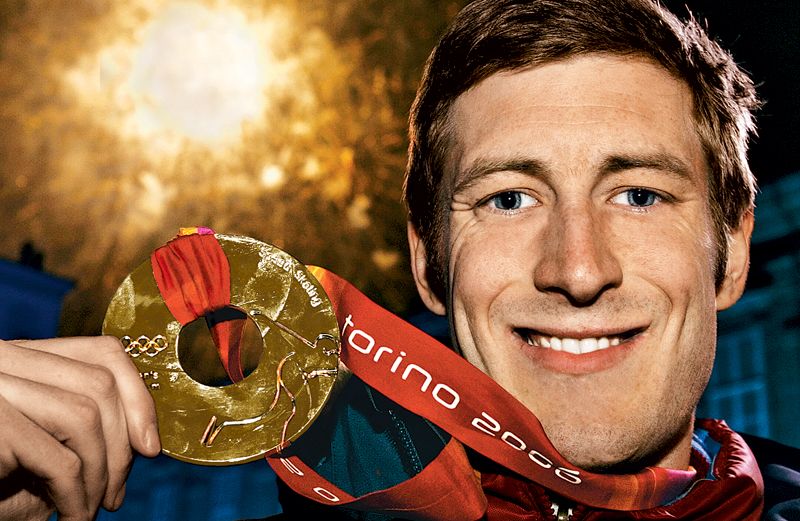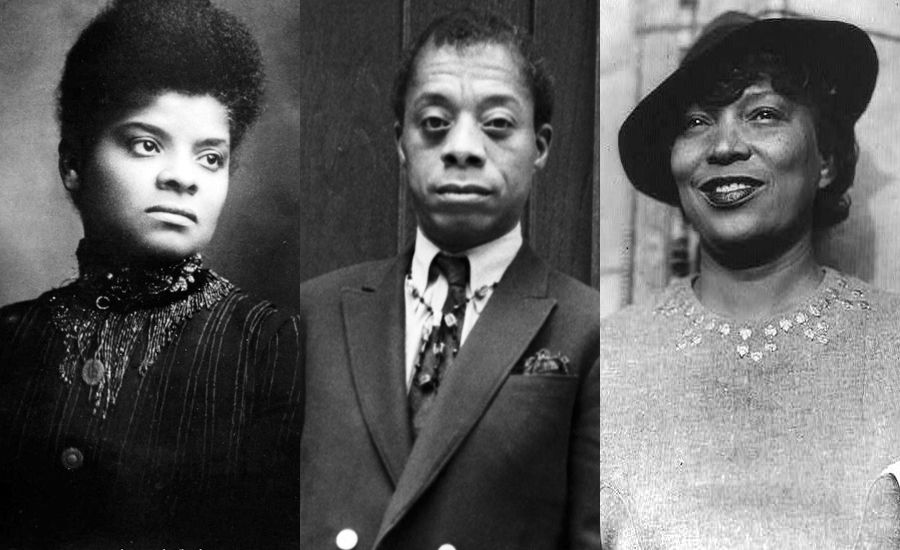What difference can I make? I had a chance to address that question at the 2006 Winter Olympics in Turin, Italy, when I stood on the podium as an Olympic gold medalist in speed skating. It was the end of a 17-year journey, something I’d been training for since I was a boy.
I grew up in the sleepy town of Greensboro, North Carolina. Now, before you say it, yes, I know there is not much ice in North Carolina. When I was about 10 I convinced my mom to let me join the roller speed-skating team at Skateland U.S.A., the local roller rink.
We weren’t even racing on inline skates, just the old four-wheel “quad” skates. After a few months my mom–the most supportive mom I know–took my brother, who also skated, and me to see the national championships.
At one point I turned to her and said, “I’m going to stand on that podium next year.” She didn’t discourage me or prod me to set a more realistic goal. She just said, “If that’s what you want, I’ll do whatever I can to help you.”
I was an extremely focused kid. I’d come home from school and do extra training, then go to the rink and race with the team for a few hours. I trained three hours a day and twice that on weekends.
Mom would drive my brother and me to races all over the country. In a little over a year from my first time on skates I was ranked third in the United States for my age group and I stood on the podium at the national championships–just like I said I would.
Over the next five years I excelled at my sport. I switched to inline skates and continued to win medals. I was one of the best junior skaters in the country, but in “real life” I was a skinny, bookish, shy kid.
The kids at school knew I wore tights when I raced–and gave me a hard time. Part of what drove me, I think, was a feeling of insecurity. I wanted to be the best in the world at something so that I could show those kids.
In February 1994 I sat in my living room watching the Winter Olympics in Lillehammer, Norway. It changed my life.
There was Dan Jansen, skating a victory lap after years of Olympic letdown. There was Johann Olav Koss, a titan of a man, winning three gold medals speed skating in front of his home crowd then donating his endorsement money to an international organization called Olympic Aid.
I was in awe of those two men blasting around the track with huge legs and liquid smooth strokes. My mom is fond of telling people that I looked up at her after a race and said, “I’m going to do that!” What I remember is her response, “If that’s what you want to do, I’ll do all I can to help.”
Shortly after my 16th birthday I hung up my inline skates and picked up my first pair of ice speed skates. I packed a couple bags and left my childhood home for the frozen plains of Calgary, Canada.
It wasn’t easy leaving home and going to a strange place where I knew no one. I was trying to learn the nuances of a new sport and finish high school by correspondence. I would train six or seven hours a day, six days a week.
I won medals as a junior national champion and eventually began competing at the senior level. But without the support of my mom, dad and brother I would never have made it. Never.
They had to give up many things so that I could travel and have the proper equipment and coaching. I didn’t know until years later how tight things were.
Maybe due to the intense pressure, maybe partly due to just being 22 and not sure of my place in the world, the year leading up to the 2002 Olympics was the worst. My self worth was totally tied up in how I performed as an athlete.
If I skated well then I felt I deserved praise and that all the effort my family and I had put into my career was worth it. But if I had an off day, I would spend hours beating myself up. I would wake up in the middle of the night unable to sleep.
I would love to tell you I passed this test with grace and dignity, but that would be a lie. I limped through. I questioned everything in my life–my faith, my ability, myself. I called home daily and probably nearly killed our team’s sports psychologist with questions.
Through all of this turmoil I still managed to make the Olympic team and win a bronze medal in Salt Lake City. But I was shocked to find it didn’t mean anything. In fact, the one thought I had was, This is it?
Eventually I realized that my self pity was the ultimate form of thanklessness. I was doing a great disservice to all those who had helped me. After that I vowed to enjoy skating and the gifts God has given me. Even though I wanted to excel at the Olympics, I would keep it in perspective.
In the great scheme of things, it’s not that big of a deal. Skating around in circles really fast in tights–I mean, it’s not like I’m trying to cure cancer.
The next few years were a breeze. Sure, I had challenges, like a frightening knee surgery, but for the most part I trained hard and cherished each moment. I traveled the world and kept my eyes open to the people I met. I took each experience as a chance to improve myself and I tried to be grateful.
I realized how lucky I was to be born here with the parents I had. Many people are not so lucky.
That’s when I began learning about the tragedy in Darfur, a region in the Sudan where more than 400,000 people have been killed and more than two million have been driven from their villages and homes. It seemed ridiculous that I could be given so much while others were being killed for so little.
In the 2006 Olympics I won a gold and silver medal, and I enjoyed it. But I felt I had to do more than just enjoy it. I was able to become great at what I loved because I worked hard and had people who believed in and supported me.
I wanted to show them how much I appreciated their support. So as I sat down for my press conference after receiving my medals and announced I would donate all the proceeds from my gold and silver medals to a charity that supports refugee children in Darfur.
Over this last year more than a million dollars have been donated by people who saw my Olympic races and heard that press conference. \
There’s much work to be done, but you don’t have to be an Olympic champion to make a difference. The group I donated to, righttoplay.com, does fantastic work for children around the world. I’ve also cofounded another group, Team Darfur.
I have retired from competitive skating now and am looking ahead at what life holds and where I will be led. I am sure, though, that it will be somewhere I can make a difference. And that is greater than gold.
Read Joey’s inspiring account of the five lessons he learned from winning gold!
More stories from Winter Olympians!






